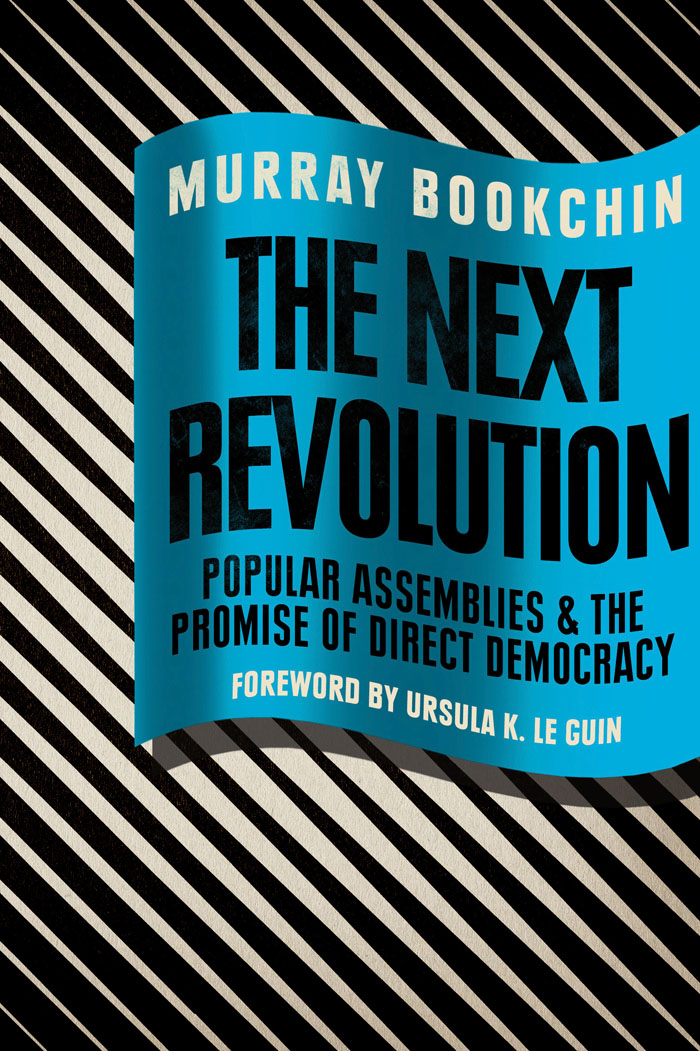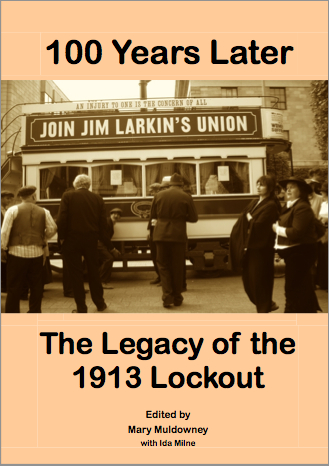Over 30 years of anarchist writing from Ireland listed under hundreds of topics
Magazine
Interview: Belfast Co-operatives.
Domination, Capitalism, and Economic Crises.
Irish Anarchist Review Issue 11
The eleventh issue of the Irish Anarchist Review goes to press in the middle of the biggest battle in the war against austerity in Ireland to date. Tens of thousands of people have taken part in mass demonstrations against the water charges, up and down the country thousands have taken part in acts of physical resistance against water meter installation and hundreds of thousands, at the very least, are getting ready to participate in a mass boycott of the charge. Furthermore, the level of political consciousness of the population has risen considerably over the last year, with a distinct anti-establishment atmosphere, and in some cases an anti-state atmosphere, developing.
Murray Bookchin - The Next Revolution (Review)
 Despite being a pathbreaking figure from the 1960s onward in anarchist, green, and directly democratic political circles having predicted early on the significance of ecological issues and technology to leftwing social struggles Murray Bookchin today remains unknown to many on the left, and to those who do know of him he remains controversial.
Despite being a pathbreaking figure from the 1960s onward in anarchist, green, and directly democratic political circles having predicted early on the significance of ecological issues and technology to leftwing social struggles Murray Bookchin today remains unknown to many on the left, and to those who do know of him he remains controversial.
Disliked by class struggle anarchists and Marxists for his advocacy of community organising over workplace organising, and by anarchists involved in single issue activism for their lack of organisation and supposed concern with personal rebellion over social change, he made quite a few enemies in his last days for fiery polemics directed at his intellectual opponents. While his supporters in organisations like New Compass defend him for his consistency, others argue that he ended up alienating potential allies by refusing to ever waver on his specific revolutionary vision: focused on creating a municipal confederation of ecological communities practicing direct democracy, founded on a philosophy of science, reason, and humanism.
This new collection of essays from the last few years of his life may provide a useful entry point of his philosophical and political project called social ecology and generate further debate for the future of libertarian socialist organising in an age of increasing militarism and climate crisis.
Review: Silvio Federici's Caliban and the Witch – Women, the body and ‘Primitive Accumulation’

This piece of work is undertaken from the viewpoint of the seemingly invisible struggles of women against authoritarian rule, the historical erasing of women as being part of the wider social struggles for liberation against oppression, and indeed, providing a different type of revolutionary struggle in their own right instead of examining the effects of social reproduction and labour of women.
Paris Bakery and EF Language School Workers Speak Out

One of the key principles underpinning anarchist politics and philosophy is that of self-organisation. And one of the key principles underpinning self-organisation is the belief that it is by doing that people learn.
Very few people come to radical politics through what they read or through ‘education’ in the traditional sense. It is usually through becoming involved in a struggle that directly affects themselves and their neighbours/work colleagues that most people come to see the power structures of society and begin a process of analysis of how society operates and how it needs to change if the needs of ordinary people are to be met.
Futurism or the Future: Review of the Manifesto for an Accelerationist Politics
 The proliferation of computerised surveillance and security systems across workplaces has had the effect that now, in offices across the world, workers’ toilet usage is continuously monitored. You swipe your ID card to get in and out, producing a data event with a time and duration, which is quietly recorded by some computer.
The proliferation of computerised surveillance and security systems across workplaces has had the effect that now, in offices across the world, workers’ toilet usage is continuously monitored. You swipe your ID card to get in and out, producing a data event with a time and duration, which is quietly recorded by some computer.Hope, Friendship and Surprise in the Zombie Time of Capitalism: An interview with Gustavo Esteva
Gustavo Esteva is an independent writer and grassroots activist. He has been a central contributor to a wide range of Mexican, Latin American, and international nongovernmental organizations and solidarity networks, including the Universidad de la Tierra en Oaxaca and the Zapatista Army of National Liberation. The WSM's Tom Murray caught up with Gustavo at a recent public lecture at the Kimmage Development Centre to discuss hope, friendship and surprise in the zombie-time of capitalism, and how people are taking initiatives, reclaiming control of their lives and creating vibrant, autonomous alternatives here today.
Irish Anarchist Review Issue 10
Welcome to the tenth instalment of the Irish Anarchist Review, published for the 2014 London Anarchist Bookfair.
Five years ago, the Irish Anarchist Review replaced Red and Black Revolution as the magazine of the Workers Solidarity Movement. It’s mission was to fill a vacuum in Irish radical circles, to be a publication that raised questions and provoked debate, rather than laying out blueprints for success, as had been the norm in the more theoretical work of the left. It was established at a time where a fightback was believed to be imminent, when the expectation was that as the (economic) beatings continued, morale would improve.
Review: 100 Years Later: The Legacy of the 1913 Lockout.
 History has traditionally been viewed through the prism of ‘great leaders’ or ‘powerful men’ (and it usually is men). In recent years, however, the importance of community or local history – and the contributions of ‘ordinary’ people to great events – has been recognised. To paraphrase Jim Larkin “The great leaders only appear great because of the commitment, sacrifice and energy of ordinary people”.
History has traditionally been viewed through the prism of ‘great leaders’ or ‘powerful men’ (and it usually is men). In recent years, however, the importance of community or local history – and the contributions of ‘ordinary’ people to great events – has been recognised. To paraphrase Jim Larkin “The great leaders only appear great because of the commitment, sacrifice and energy of ordinary people”.
